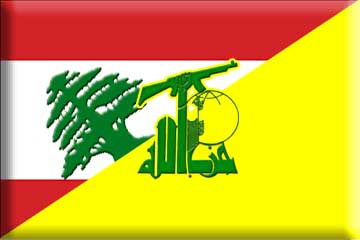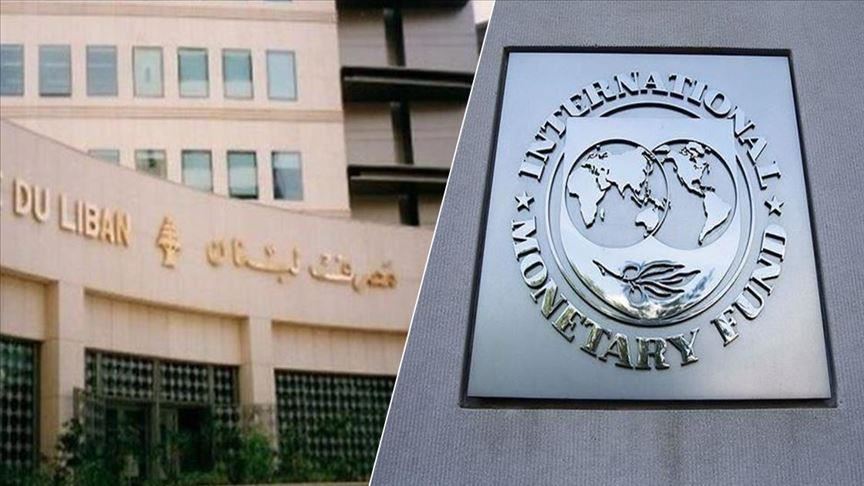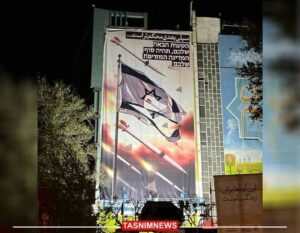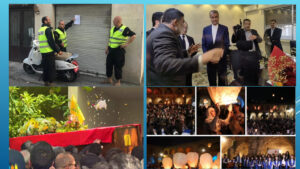Hezbollah’s actions, initiatives, and the political steps it has taken, established it as a semi-governmental system in Lebanese politics. In the already complicated and widely ethnic political system in Lebanon; of a people with many different ethnicities and historical conflicts, Hezbollah has reached the point in which it has a hand in both social and political spheres. Hezbollah’s involvement is apparent in Lebanon’s parliament’s political crisis today, which has worsened with the financial situation’s deterioration, even to the point of complete paralysis. This ongoing circle expresses itself in the difficulties the Lebanese government has in governing the country, that come from Hezbollah’s extreme dominance over the country. There are four main causes for Lebanon’s overall situation:
- The crash of Lebanon’s currency (Liras)
- The start of the implementation of the US “Caesar Act”
- Hezbollah’s refusal to demilitarize and uphold the United Nations Security Council Resolution (UNSCR) 1559 and 1701.
- The outbreak of widespread, raucous protests, with no ethnic specificity to the protesters.
Hezbollah’s influence becomes more and more evident, even to the point of complete control of the following bodies: the Lebanese government led by Prime Minister Hassan Diab, the parliament, the Lebanese Army and the Lebanese intelligence, the online media infrastructure, banks, general organizations, and more. Diab’s predecessor, Saad al Hariri, resigned from office due to the pressure that was put on him by the protests against the economic crisis and the corruption of the government. Even though Diab is Sunni (according to the Lebanese Governmental ethnic division, the Prime Minister is always Sunni, while the president is always Christian, while the head of the parliament is always Shiite), he was forced to defer to the “Hezbollah coalition” that holds the majority in the parliament, which serves Hezbollah’s interests. Therefore, Diab has difficulty in establishing a technocratic government to pull Lebanon out of the mud. It’s important to remember as well that Michel Aoun (appointed over the Christians) is also part of the Hezbollah coalition, and therefore Diab’s maneuverability is limited unless he will succeed in getting approvals from his government for a recovery and development plan for the country. Also, we need to consider the fact that Iran dictates Hezbollah’s activity: military, political, and civic, and financially supports Hezbollah for it. In fact, all of Hezbollah’s activity inside and outside Lebanon is dictated by Iran and serves its strategic interests in expanding its influence from Iran all the way to the Mediterranean Sea. Therefore, Hezbollah will not dismantle its weapons, unless ordered by Iran.
However, there is a price to Hezbollah’s refusal to do so. During Diab’s time in office, apart from the protesters’ bitterness towards the economic crisis, they also began resenting and opposing Hezbollah, seeing that it succeeded in gaining control over the majority of the institutions of power in the country, making it “a state within a state”. Hassan Nasrallah’s ability to apply pressure on key players in the country and influence them makes him the puppeteer, pulling the country’s strings of power. This was the basis for the protesters’ resentment of Hezbollah, who they saw as responsible for everything, including the current economic crash, Lebanon’s entanglement in a foreign war in Syria that claimed the lives of many and put a heavy financial strain on the country.
In Ria Sharatoni’s article in the electronic newspaper “AA”, (ل يخسر لبنان مساعدة صندوق النقد بسبب “حزب الله”?), she brings the commentator’s views on the implications of Germany’s labeling of Hezbollah as a “terrorist organization”. They agree that it will greatly affect Lebanon’s relations with the international community, especially when Lebanon needs its support the most. Whose fault is this? Obviously, it is Hezbollah’s. Similar opinions were voiced in the protests in Lebanon, calling for Hezbollah’s demilitarization in compliance with the UNSCR’s 1771 and 1559 Resolutions.
Hezbollah’s refusal to the UNSCR reflects the Prime Minister as someone unable to enforce the government’s decisions with Hezbollah, thereby undermining the government’s international status, making it viewed as a country with an unchecked military force, more powerful than the government’s official military force (the Lebanese Armed Forces LAF) that answers to no one. This indicates serious governing problems of the government. Hezbollah’s behavior and the government’s powerlessness against it continue to stir anger within the protesters, who believe that the “Hezbollah State” within Lebanon is its main problem, both economically and politically. This is expressed in the fact that the current protests have no specific ethnic origin. In this manner, according to the Lebanese media, the protests at the beginning of June 2020 are described as the reunification of the March 14 Alliance that was formed in the Cedar Revolution in 2005, succeeding in extracting Syria from Lebanon. The alliance was led by the Christians, all the Sunni and Christian Muslims, and a Shi’ite minority. It is a pro-Western party that believes in independence for Lebanon, as opposed to the March 8 Alliance, a pro-Syrian Shi’ite coalition led by Hezbollah and the Amal Movement. Embarrassingly, the March 14 Alliance almost completely disappeared, specifically during Said Hariri’s years in office, until the outbreak of the current protests.
The current protests of the March 14 Alliance’s heirs stem from the understanding of the hidden danger in the United States’ sanctions that were placed on Lebanon’s economy under the Caesar Act, that crashed because of the cooperation of Hezbollah and other financial and economic groups with Assad’s regime in Syria.
However, the concern over an economic collapse does not end here. Lebanon’s request made to the International Money Fund (IMF) for aid in dealing with this embarrassment, was granted on two conditions, never to be violated by Lebanon:
- Blocking of the illegal borders between Syria and Lebanon that allow weapon smuggling to Hezbollah in Lebanon and the smuggling of goods from Lebanon to Syria without paying taxes to Lebanon and bypassing the sanctions that were placed on Syria and Hezbollah.
- Demilitarization of all militias in Lebanon in accordance with the aforementioned UNSCR’s.
In other words, there is an accumulation of demands by international organizations for the neutralization of Hezbollah’s military power as a condition for emergency economic aid for Lebanon: the UNSCRs, the International Monetary Fund’s conditions for aid, the implementation of the Caesar Act’s sanctions, and pressures applied by western countries such as the European Union and the United States. Will the Lebanese government be able to meet these demands and thus save itself from economic ruin? At the moment, there is no definite answer.
The recent protests show us the reality as they define it, for example:
In mid-June, there were reports of hundreds of protesters that blocked the main roads in Beirut at night. This was in protest of the dire economic situation and the crash of the Lebanese Lira. In Tripoli, protests and clashes broke out between civilians and security forces that prevented the protesters from reaching and breaking into the city’s central bank. Simultaneously, protesters in the Shuhada Square in Beirut called for “Lebanese national identity against religious identity”, emphasizing the fact that these protests are not bound by ethnicity and religion, out of fear that the protests will erupt into civil war.
Hezbollah’s responses to the situation it found itself in regarding the country-wide protests were generally vulgar, emphasizing its perception that the fact that it sees itself as a “state within a state” allows it to disregard international law. For example, Hezbollah’s “electronic army” uploaded a “without our weapons – there will be blood” hashtag. The “electronic army’s” hackers and digital specialists flood social media with threats to the protesters, such as: “Return our slain and our young, and we will return our weapons to you.” “We’ll cut off their hands if they…(reminds us of Nasrallah’s threats in the riots on May 7th, 2008, when he said “We’ll cut off the hands of those who lend theirs to the resistance”)”. “What the demons of the land have not succeeded in doing over decades, a handful of weirdos, traitors, and losers won’t either. Try us.”
Hezbollah didn’t stop with crude rhetoric. According to Muhammad Barkat’s article “Shi’ites Shi’ites” in Beirut: Hezbollah Buries “Resistance”, in the electronic newspaper “Ein al-Akhbarieh”, Hezbollah sent the organization’s and Amal’s youngsters to attack the protesters’ tents in classic Shi’ite areas such as Tyre, Nabatieh, Baalbek and Shi’ite neighborhoods in Beirut. This was in retaliation to the joining of these areas’ Shi’ite locals to the protests after losing faith in the “resistance”, compelled by the ever-increasing poverty, not being afraid of exposing themselves in public. There are also reports of violent clashes between Hezbollah operatives and protesters in the streets.
Hezbollah had to respond to the waves of hostility of the civilians, many of them young students, and some of them even Shi’ites themselves. The most powerful organization in Lebanon, for the first time, found itself unable to properly address a situation like this, even with its control of Lebanon’s government, parliament, army, police, intelligence, infrastructure, and media. With all its power, Hezbollah was unable to connect with the protesters, dominate them, and implement its narrative. Hezbollah found itself for the first time in a political embarrassment, having no concrete response to the hostility towards it – crude slogans flung heedlessly and directly at it. These protests were recorded and quickly published in Lebanon and to the entire world. Hezbollah was unable to contradict the claims’ validity and the fact that the protests were unified, non-ethnic and non-political, aimed at the government on one hand and at Hezbollah on the other, to both “states”. Nasrallah’s statements over the years that Hezbollah ensures Lebanon’s security have been met with contempt and with accusations that Hezbollah is the one responsible for Iran’s entrance to Lebanon, with its own interests, foreign to those of Lebanon’s.
In this extreme, however not impossible scenario, the situation Hezbollah is in is likely to drive the Lebanese people to escalate the situation to nonstop violence against the government. When this will happen, Hezbollah will not stand by idly, instead, it will ignite the next civil war in Lebanon. This is the civilians’ fear that prevented them from protesting until October 2019 and was also Hezbollah’s tool for controlling the places of power in Lebanon in the riots of 2008. In the more likely event, even the western players will not allow Lebanon to completely collapse and have a civil war, because this will play to Hezbollah’s advantage.







